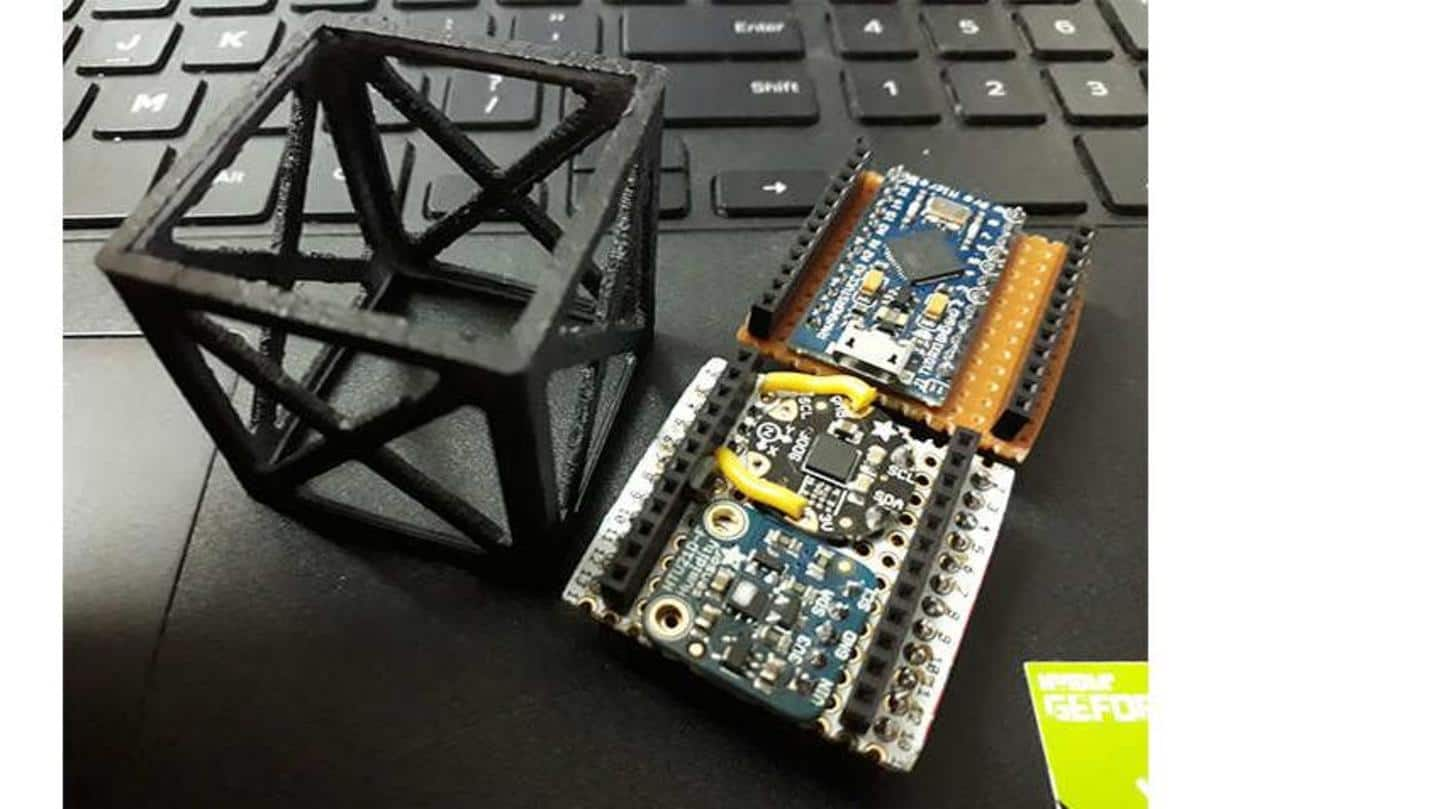
Tamil Nadu's 18-year old S Riyasdeen creates world's lightest satellite
What's the story
S Riyasdeen, a second-year Mechatronics engineering student from SASTRA University hailing from Karanthai in Tamil Nadu's Thanjavur, won the global competition "Cubes in Space" for creating the world's lightest femto-satellite.
He designed VISION SAT v1 and v2 satellites, which are essentially cubes measuring 37mm and weighing only 33g.
The competition, conducted by the National Aeronautical Space Agency (NASA), hosted 1,000 participants from 73 countries.
3D-printed design
Details of the world's lightest satellite
Riyasdeen, mentored by Chennai-based INRO Labs, used 3D-printed polyetherimide (PEI) thermoplastic resins in the satellites.
VISION SAT v1 and v2—designed to record 17 parameters using 11 sensors—will be part of NASA's SR-7 Rocket Mission (June 2021) and Balloon Mission RB-6 (August).
Riyasdeen received an incubation grant of Rs. 5 lakh from SASTRA-TBI in 3D Printing and the Internet of Things Department for his startup venture.
Student space program
'Cubes in Space' global design competition
Riyasdeen won the "Cubes in Space", which is the only global design competition offered at no cost for students aged between 11 and 18 years. It involves designing experiments launched into space or a near-space environment through NASA's sounding rockets and zero-pressure scientific balloons.
The program began in 2014 and has seen 900 experiments with 2,200 educators, engaging 21,000 students from 73 countries.
Femto-satellites
NASA launched KalamSat satellite in 2019 made by Rifath Sharook
In 2019, NASA successfully launched the world's smallest and lightest satellite built by 18-year-old Rifath Sharook along with six other teammates.
Weighing in at 64 grams, the satellite called "KalamSat" was named after the former Indian President and aerospace scientist APJ Abdul Kalam.
Sharook describes the satellite as a means to demonstrate the performance of 3D-printed carbon fiber in space.
Do you know?
Sharook's satellite was part of project for 'Cubes in Space'
Sharook's lightweight satellite was a part of a project meant for the "Cubes in Space" competition, which was a collaboration between NASA and I Doodle Learning. The project was sponsored by Space Kidz India and primarily used reinforced carbon fiber polymer for the satellite.